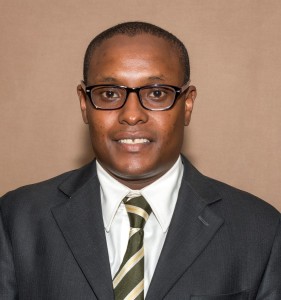Why did you become a FEL-100?
My introduction to the energy world was after I finished studying at the Vlerick Business School, when I worked for a company that operates in oil and gas exploration, extraction, refining and delivery to consumers.
I quickly learnt that energy is the golden thread that connects economic growth, decreases social inequity and facilitates a healthy environment - without it there can be no economic prosperity. I also realised we are living in a transitory period characterised with energy price volatility, uncertainty and accelerating expansion. Hence I wanted to find a peer group composed of exceptional, young professionals who share my commitment to shaping the global energy future.
Then I found about the World Energy Council Future Energy Leaders programme, FEL-100. What particularly interested me was that its members come from across the world and represent diverse sectors such as government, industry, academia, civil society and social entrepreneurship. Also, for me it is important that the FEL-100 programme covers the entire energy spectrum of fossil, nuclear, renewables and electric fuel sources.
What’s happening in the Philippines?
Over the last three years, the Philippines has been on an upward trajectory. Recently, according to a Bloomberg survey of economists of the 20 Fastest-Growing Economies in 2015, the Philippines was ranked second to China, closely followed by Kenya, India and Indonesia. With this positive outlook, I look forward to a bright future for the Philippines with increased interest and business opportunities arising from foreign investment and improvements in our sustainable energy programmes.
What are the benefits of being a FEL-100?
They are immeasurable. In the time I have spent in the energy industry sector, I have developed a keen interest in scenarios, the Energy-Water-Food Nexus, last mile connectivity (energy poverty) and the energy mix. I’ll give you a few examples:
-
Scenarios: I was invited to join the World Energy Council’s Scenarios Study Group which has some of the most competent, accomplished and seasoned global scenario developers and planners. Whenever I attend a meeting the learning and experience I gain is relevant and pragmatic. The opinions, insights and ideas that are shared amongst professionals who steer their organisations through different defining moments such as the Fukushima nuclear disaster, the Argentine energy crisis, the California electricity crisis and the 1990 Gulf war oil price shock have given me an in-depth knowledge that has helped shape my work.
-
Energy-Water-Food Nexus: Recently, I was invited to manage and lead the Energy-Water-Food Nexus Knowledge Network, which for me was very exciting. I’m hoping that it will generate viable solutions for the future.
-
The World Energy Congress: I was extremely privileged to meet Sanjit “Bunker” Roy founder of the Barefoot College at the World Energy Congress. What he said was extremely relevant to the Philippines where we have been tackling the issue of last mile connectivity (energy poverty) which is so very relevant to the World Energy Council’s mission; ‘To promote the sustainable supply and use of energy for the greatest benefit of all people'.
Great question. I’m encouraged by the number of new members from across the world such as Armenia who recently joined as the 95th member committee of the World Energy Council. I’m hoping that there will be many more new members to exchange views with.
I’m also looking forward to the 2016 World Energy Congress with its theme of "Embracing New Frontiers" and its reflections on an ever expanding work programme that addresses 'Resiliency' (Financing Resilient Energy Infrastructure),"E-W-F" Energy-Water-Food Nexus, and regional integration.
And finally, I admire our chair Marie-José Nadeau for championing a ‘Lean In’ movement in the Energy industry, where through her own experience she highlights the link between women’s participation in the workforce and economic growth. Her support for gender inequality is welcomed as we move forward in the 21st century.”






